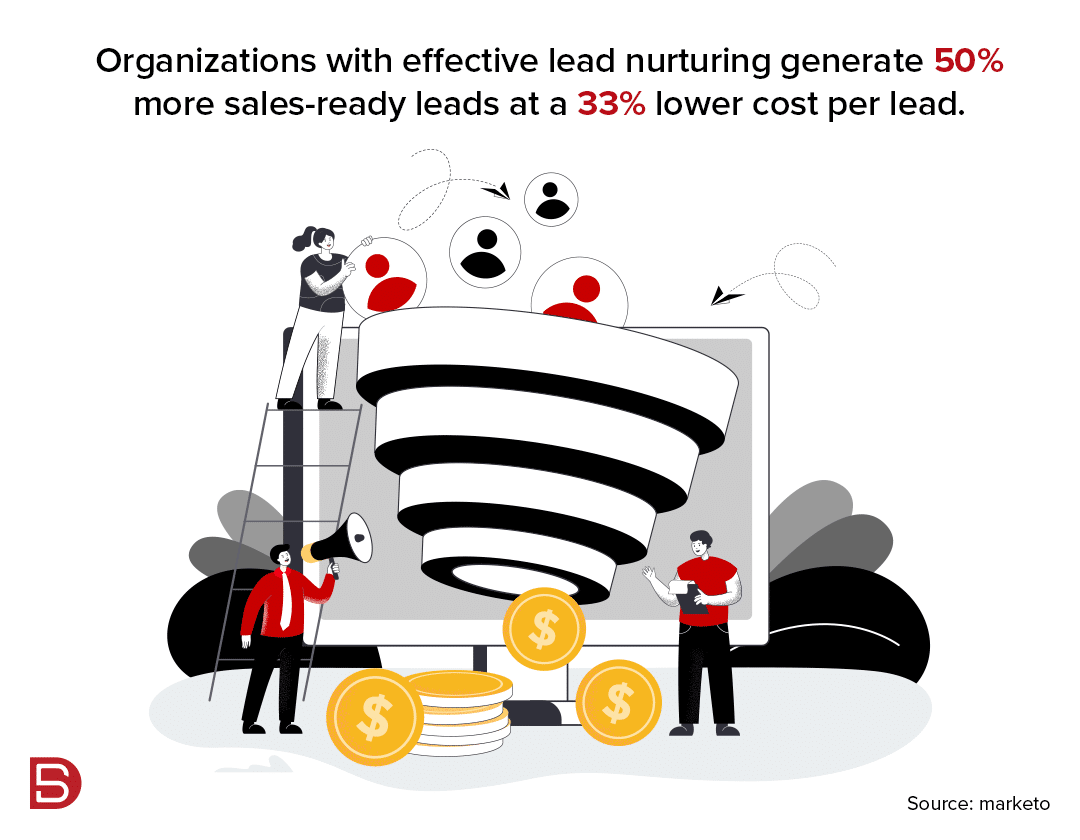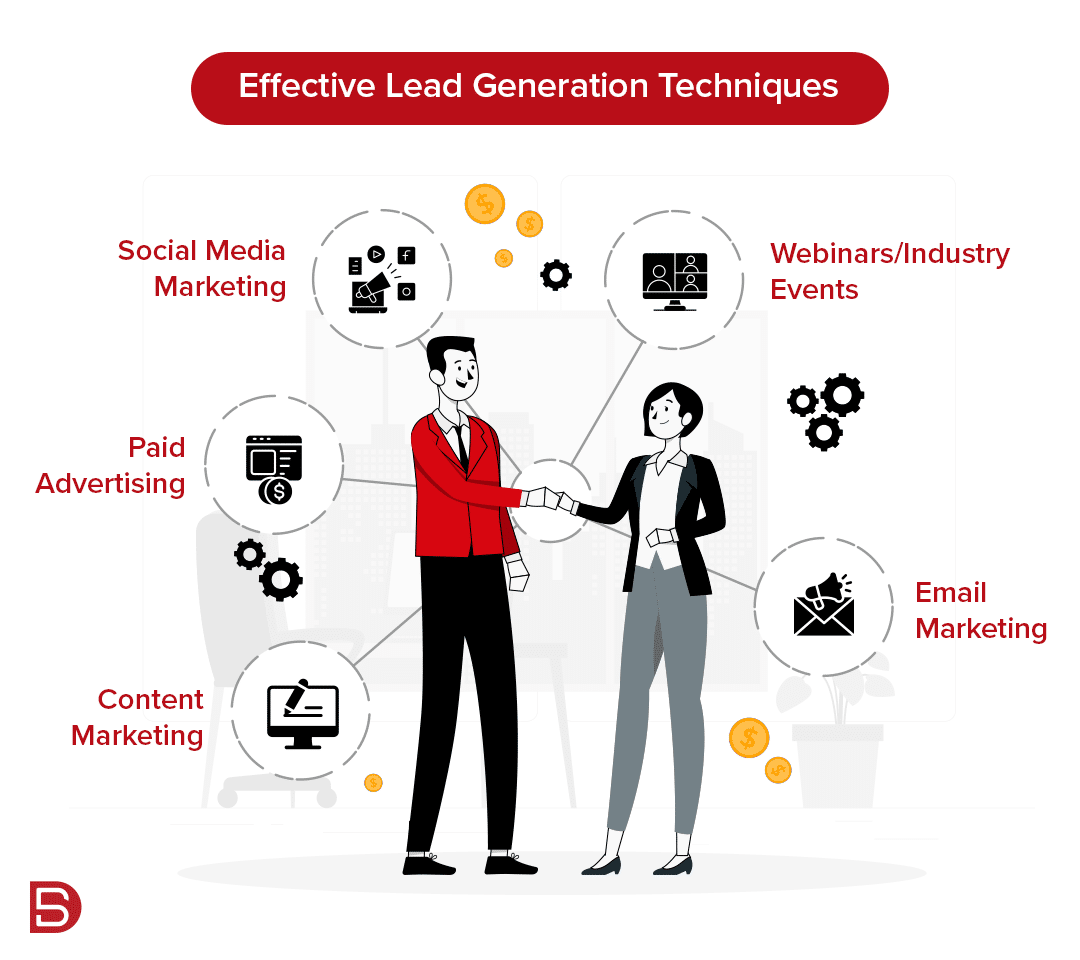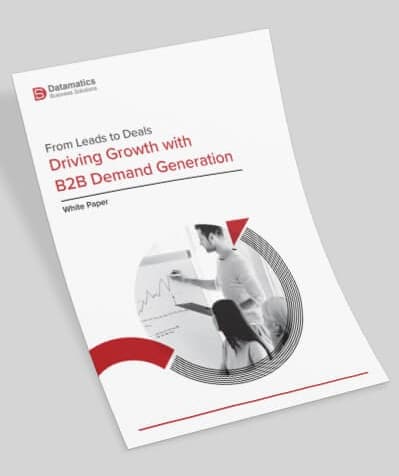Marketing Qualified Leads (MQLs) – A Quick Introduction
In its simplest form, a marketing qualified lead is a potential customer who has expressed a certain degree of interest in a company’s product or service. Their interest could have been established based on their interaction with the company’s marketing campaign through a whitepaper download, an email open, or simply by visiting a dedicated webpage.
The engagement of these leads with marketing materials, webpage visits, or even their interactions with sales representatives determines their readiness for further engagement and conversion, thus making them marketing qualified leads. These marketing qualified leads have a higher chance of becoming paying customers compared to regular leads.
Importance of MQLs for businesses
Marketing Qualified Leads (MQLs) play a significant role in the success of any modern business, as they have higher chances of getting converted into paying customers compared to other leads. However, there are several other reasons that make MQLs significantly important for modern businesses. Here are just a few of them:
• Higher Conversion Rates
MQLs are the leads who have already shown clear interest in your product or service. They are willing to learn more about the offering through personalized messages or marketing conversion. Nurturing these MQLs through personalized messages and content will significantly boost their conversion rates and optimize your sales funnel.
• Focused Customer Profiling
Marketing Qualified Leads provide valuable insights into your potential targets. Analyzing these insights allows businesses to gain a clear understanding of their target customers. These insights also make it easy for businesses to refine their buyer personas, create focused marketing strategies, and deliver more personalized experiences, all of which lead to increased customer satisfaction and higher customer retention.
• Higher Return on Investment (ROI)
MQLs can significantly boost the ROI on your marketing investments. By investing your marketing resources on MQLs instead of running generic marketing campaigns, you can generate higher-quality leads with a higher potential for conversion into paying customers. This results in an overall better ROI on marketing campaigns.
Overall, marketing qualified leads allow businesses to not only optimize their marketing efforts but also drive revenue growth and chart a path for long-sustained success.
How to Identify MQLs
Characteristics of Marketing Qualified Leads
Identifying Marketing Qualified Leads (MQLs) successfully requires you to distinguish them from other leads using specific characteristics that MQLs exhibit. To help you identify them with absolute certainty, here are the key characteristics of MQLs:
• Engagement
MQLs, in general, engage with your marketing efforts on a deeper level. They go beyond casual web browsing and download your marketing resources, subscribe to your newsletters, engage with your brand on social media, and may attend webinars. These activities clearly depict their interest in your product or service, qualifying them as MQLs.
• Lead Score
Compared to normal leads, MQLs generally have higher lead scores. Lead scoring is the mechanism to assign scores to leads based on their actions and attributes. Due to their higher engagement with the brand, MQLs tend to score high on the lead scoring scale, indicating a higher likelihood of conversion.
• Buying Intent
MQLs exhibit higher buying intent through frequent website visits, product inquiries, pricing comparisons, or even requesting a product demo. These signals demonstrate a deeper level of interest in the product and a higher intent to make a purchase. You can use these buying intents to prioritize MQLs and tailor marketing efforts accordingly.
• Sales-Readiness
MQLs, in general, are more “sales-ready” compared to regular leads. Marketing qualified leads are at a stage where they are more open to receiving sales communication and often respond positively. MQLs only need a small, focused nudge to bring them closer to finalizing their purchase decision.
While these are certain characteristics of MQLs, it is worth mentioning that the characteristics of MQLs might vary significantly based on the industry, nature of business, and target markets. You need to establish clear collaboration between your sales and marketing teams to ensure a clear understanding of the characteristics of MQLs.
5 Ways to Generate Marketing Qualified Leads
Before you embark on your journey to generate MQLs (Marketing Qualified Leads), it’s worth remembering that the key to generating MQLs is to deliver value through personalized campaigns and proper nurturing through the sales funnel. Knowing this will help you identify and leverage the most productive ways to generate MQLs and maximize conversions.
Here are some effective strategies for generating Marketing Qualified Leads (MQLs) for your business:
1. Content Marketing
Creating content that adds value and is relevant to your target audience is an effective way to generate leads. Content pieces such as eBooks, blog posts, whitepapers, podcasts, and videos addressing the challenges faced by your audience serve well as lead magnets and drive traffic towards your product/service pages. You can optimize these content pieces for search engines to rank higher for relevant keywords and drive organic traffic to your website.
2. Social Media Marketing
Social media platforms are incredibly effective means to engage with your target audience and generate leads. You can create and share content that resonates well with your audience, participate in relevant industry discussions, use lead generation forms/landing pages, or run targeted advertising campaigns to capture leads directly from social media platforms.
3. Webinars and Industry Events
With the world getting back to the “old normal,” hosting webinars, conducting workshops, or organizing in-person events are back upon us. You can leverage these events to generate and capture MQLs using your sales team. In-person events present a great opportunity to engage with your audience and understand their pain points, which can then be addressed through your products or services.
4. Email Marketing
Even in the days of instant messages and Zoom meetings, email still remains one of the most effective modes of communication. Thus, you must carve out a targeted email marketing strategy to nurture your potential customers and convert them into MQLs. You can use marketing automation tools to segment your email lists based on demographics and behavior and send personalized content to engage with leads. Include compelling CTAs (call-to-actions) in each of your email campaigns to encourage lead conversion.
5. Paid Advertising
Online paid advertising platforms such as social media ads, Google Ads, and display ads are great means to reach a wider audience. You can narrow down your targeting options to precisely target your ideal customer profile. You can even use paid ads to drive traffic to dedicated landing pages that have been specifically optimized for lead generation.
You might like to read: Creating a Winning B2B MQL Strategy: A Step-by-Step Guide (eBook)
While there are some prominent ways to generate marketing qualified leads, there are others such as referral programs, partnerships and collaborations, rewards, discounts, or exclusive benefits that can help you tap into your audience and generate MQLs.
Conclusion
For any B2B marketer looking to thrive in the modern business environment, mastering the art of MQLs (Marketing Qualified Leads) and lead generation is a must. It is not only integral for the growth of the business but also for the individual in today’s competitive market. While the aforementioned processes to identify and generate marketing qualified leads can work wonders for you, there are still some crucial points that you need to take care of.
To start with, always prioritize quality over quantity when it comes to leads, maintain a targeted approach, and ensure that you do not compromise on the quality of your content. For any other inquiries, feel free to contact us at marketing@datamatcisbpm.com, and we will assist you in starting your lead generation journey.

Paul van de Kamp




